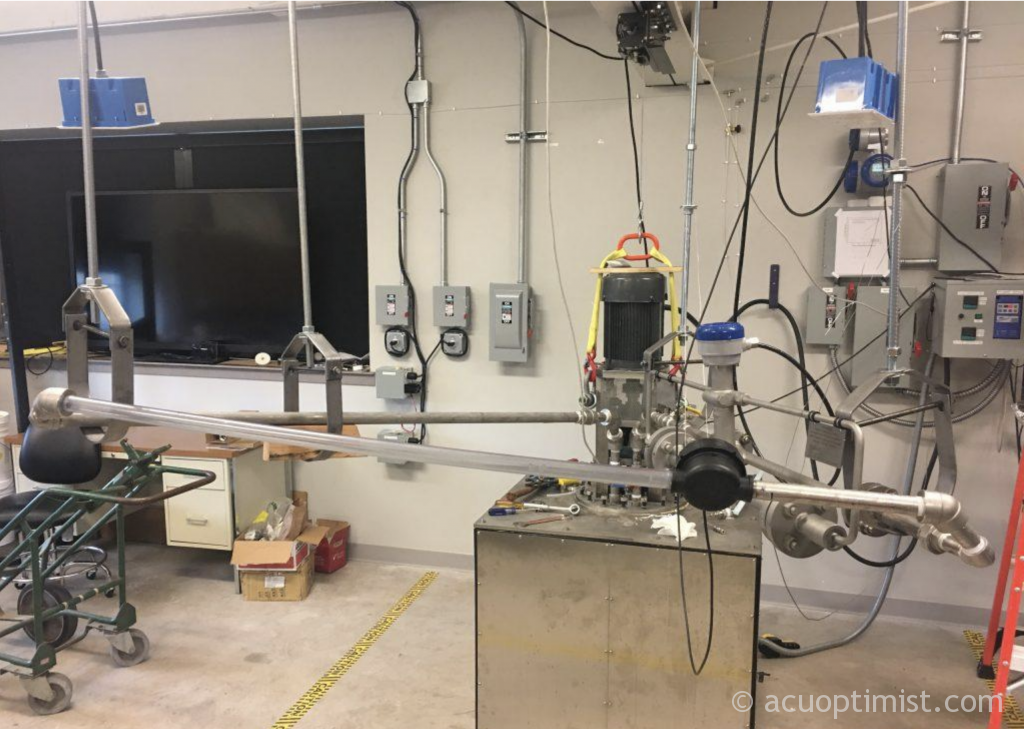The Nuclear Energy eXperimental Testing Lab has established a consortium with the University of Texas at Austin, Georgia Tech University and Texas A&M University, in pursuit of building the first university-based molten salt reactor in the U.S.
Dr. Rusty Towell, professor of engineering and physics and director of the NEXT Lab, said about 30 universities in the country have research reactors, but none have a molten salt reactor.
“We’d be the very first,” Towell said. “So we would be literally a facility that people would come from around the world to use.”
In July, the Associated Press, a national news agency company, published an article about ACU’s NEXT Lab.
The NEXT Lab, consisting of about thirty members of faculty, staff, students and full-time researchers, plans to create a molten salt reactor, through both engineering and design, that aims to provide a solution to the main argument against nuclear energy: the harmful, nuclear waste.
“Several pieces of legislation [are] specifically saying, ‘We want to reinvigorate the nuclear industry because it is so clean, because it is so inexpensive and it can be done safely. We would like to empower advance reactors that have those qualities,'” Towell said. “So hopefully, as the national attitude shifts and our politicians are really, really excited about striving for safe energy and clean energy, they are going to be looking more and more to nuclear.”
By using energy stored inside a nucleus, the amount of fuel needed to produce enough energy needed for daily usage decreases by a large factor in comparison to all other forms of energy.
“So you need super-tankers full of oil or railroad cars full of coal to produce a significant amount of electricity,” Towell said. “But you can produce significant amounts of energy or electricity from literally a handful of material if using the nuclear force.”
The small amount of waste generated in the molten salt reactor will be captured in a solid form, rather than a liquid or gas form, that will ultimately protect the air and groundwater from harmful chemicals returning to the atmosphere.
“But it’s actually even better than that, because that handful of waste actually has stuff in it that’s life-saving medical isotopes,” Towell said.
The molten salt reactor will also be able to extract useful medical isotopes from the by-products, to provide them to doctors and hospitals to treat and cure cancer.
“So if you can have energy that’s safe, and clean, and abundant, and dependable and it produces medical isotopes, then you can bless the world and change the world,” Towell said.
Dr. Charles Ivy, on the NEXT Lab advisory board at ACU, originally convinced Towell to begin looking into molten salt reactors at ACU. Towell was formerly an instructor at the U.S. Navy’s Nuclear Power School and has prior years of experience working with nuclear power and pressurized water reactors. Towell said he was initially hesitant in the project because of the challenge of using heated, liquid salt to cool the reactor, opposed to water.
The NEXT Lab received funding from the Development Corporation of Abilene in August of 2018 and funding from the Robison Excelsior Foundation in November of 2018. Since then, the project has received federal grants and subcontracts, as well as other foundational donations.
The NEXT Lab is now in communication with the U.S. Department of Energy to supply the fuel needed for the reactor. The team will have to gain the approval and license from the Nuclear Regulatory Commission to begin the construction of the reactor.
“From the time the Department of Energy says, ‘We will supply you the fuel when the time’s right,’ we’re not saying until we get our hands on the fuel, we don’t need it immediately, but when they tell us, ‘Yes, we will deliver it,’ that’ll start a five-year clock,” Towell said. “And we will raise the funds, and build the reactor, and accept the fuel and go critical in five years. It’s pretty amazing.”
Towell said the average time it takes to build a commercial reactor is 10-years.
On-campus, the NEXT Lab is working on a molten salt test loop, building instruments to measure flow-rate, pressure and levels of the salt and the over-all design of the reactor. Chemists are working to understand and monitor the composition of the salt as it changes and how to extract the medical isotopes produced inside the reactor.
Keaton Brewster, junior physics and math major from Malibu, California, and student worker in the NEXT Lab, works on instrumentation research and development within the lab and originally got involved by asking his professors about the project.
“It’s important because I think creating clean energy is probably the biggest problem with our society right now,” Brewster said. “I think this is a really big stepping stone into moving in the right direction towards different kinds of energy that are cheaper and a lot better for our planet.”
Towell says as classes begin across campus, the team will look to hire more students.

